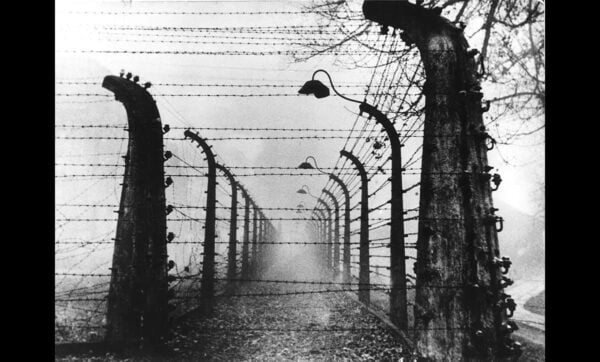
It is Common Knowledge that Soviet Soldiers Liberated Many Concentration Camps during the Second World War
In past posts on this page, I discussed what decisions are more likely to hurt a plausible victory for Ukraine and their allies by way of their own hands, as opposed to strategic decisions made by Russia during the conflict in Ukraine. Many of these bad decisions subsequently ramped up quite rapidly and in a short period of time, creating a larger cost to support for Ukraine than existed previously. Many of these problems were created by Allies to the war effort that have taken actions that may hurt Ukraine more than the help that was intended. While I will refrain from labelling a specific ally, this is a case study on how to not support your ally, and a notable one at that.
A few short weeks ago, one of Ukraine’s allies took to creating a diplomatic row with India. This was done in a method that is considered an aggressive and unusual diplomatic move between the two countries, seen as allies in their own right. India, as we have discussed in the past, is likely the key to many peace treaties and has value in creating diplomatic solutions between Russia and its allies, and Ukraine and their allies. India, as being a large and significant power in their region, is able to work with and have good relations with all sides in the conflict as neither side is willing to risk good relations with India over India’s own best self interests, even if it gives strength to the other side of the conflict. With Ukraine’s Ally pressuring India, India may alienate Ukrainian Allies in general or be motivated to give added support to Russia, where less critical diplomatic postures address concerns with the one of the world’s most significant democracies.
India’s position in the region has placed it on the opposite side of the conflict in Nagorno-Karabakh, where military support of Armenia and its people has run contrary to NATO allies permitting the Azeri military pushing out the Armenian population out of their historic ethnic region. While NATO and their supporting allies have invested billions a month to defend the civilian populations in Ukraine, there is little mention of the forced expulsion of Armenians from their homes in the region at the other end of the old Soviet sphere of influence. While Russian support for the region waned, American negotiations failed. The end result was another notable shock to a community that has suffered ethnic cleansing too many times over the last century and a half.
Turning back to the row with India, the same ally who is currently losing diplomats in India has been pitting the needs of their own population against support for Ukraine. The effect of underfunding their largest city and economy has turned the city into a place with high crime and limited systemic solutions for crime, poverty, housing and health care. It has come to the point that those who are physically weaker are afraid to use public transport, making them unable to pay for higher food and shelter taxes added on bi-annually by the Government. This Government sent a letter to the city saying they refuse to give them Covid funding that was previously promised, always highlighted by their support for Ukraine. This same Government then boasted that they have given appx.$6-$7 Billion of aid to Ukraine, despite not meeting their NATO minimum obligations and now deciding to cut military funding by nearly $1 Billion to their own soldiers, despite having their own near border with Russia. But this is not the worst of it…
In an act of extreme negligence or horrific intent, it was made evident that this ally of Ukraine has been accepting extremist elements from various groups around the world into their country for generations, nullifying any prosecution of their crimes, in many cases, crimes against humanity. The presenting of a member of the 14th SS Galicia Division in their Parliament was an offense to victims of Genocide worldwide, done during a state visit by Zelinsky himself close to Yom Kippur. This particular Division of the Nazi SS was known to be so severe that German soldiers at the time saw them as brutal and extreme in their own right, eliminating 98% of the Jewish population of the Galicia region. This Ukrainian SS officer was easily known to be part of the German 14th SS Division, and was taken as a hero in his fight against Russia in the Second World War by the Government of this Ally before their mea culpa. While Soviet soldiers of Russian, Ukrainian and other origins were liberating Concentration Camps in Galicia, a man who helped wipe out family after family in the region was praised. To this day, the sitting Government’s Cabinet has taken little personal or direct accountability for inviting such a man, despite their own Deputy Prime Minister being an academic expert on Ukraine herself. While Russians are constantly told that their historic enemies from Nazi Germany are the catalyst for this war in Ukraine, this Ally of Ukraine created the biggest propaganda tool for Putin that could ever have been wished for in 2023. On top of this, Poland is now seeking his extradition for war crimes from the Ally. With the same Ally refusing to sell oil and gas to Europe to displace Russian oil export wealth, it is surprising that such allegiances are deemed as acceptable by Ukraine or any nations seeking to help Ukraine win the war.
No one will voluntarily fight and die for the leader of such an Ally, and ties between Zelinsky and such an Ally will do nothing more but taint the valor of their Armed Forces. If Ukraine wishes to win this war, or at least meet reasonable objectives, they need to cut those who will make economic, political, public relations, and security losses a certainty.